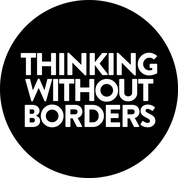)
Around 47 million people across the world have dementia. And it’s anticipated that dementia will affect 131.5 million people by 2050. Dementia can have a devastating impact on the lives of people and their families. So, we’re carrying out all kinds of dementia research from diagnosis to care.
To advance our understanding and collect vital data to help with dementia diagnosis, we collaborated with a number of partners to create a ground-breaking app in 2016. A free adventure game, Sea Hero Quest could be played on a mobile or VR headset. Navigating through the land using landmarks and visual clues, players collected pieces of an ocean journal before progressing to the next level.
A staggering 2.8 million people played the game in the first 12 months. This unlocked the equivalent of 100s of years’ worth of lab research and navigation, memory and dementia data.
Key to the game was spatial awareness. This can be an early tell-tale sign of dementia. The data gathered from the game will help to identify the early signs of changes in spatial awareness and whether someone is getting dementia long before more well-known symptoms of memory loss occur.
Sea Hero Quest highlights the immense power of collaboration. It brought together expert brains from UEA, Deutsche Telekom, University College London and Alzheimer’s Research UK. And the game was played by hundreds of thousands of people who wanted to get involved with dementia research.
We hope that the largest ever study of spatial navigation capabilities will help scientists here and beyond to diagnose dementia earlier and eventually find a treatment.
Our Perspectives
“This project provides an unprecedented chance to study how many thousands of people from different countries and cultures navigate space. This will help shed light on how we use our brain to navigate and aid in future work on diagnostics and drug treatment programmes in dementia research.”
– Michael Hornberger, Professor of Applied Dementia Research at UEA & Co-developer of Sea Hero Quest
